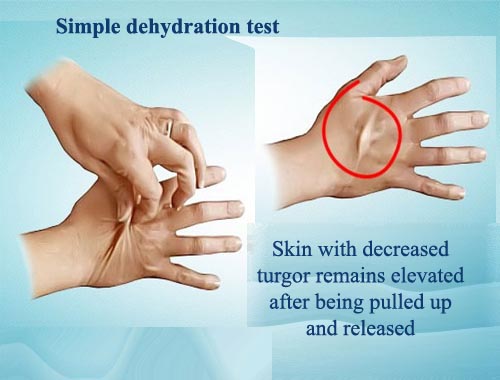Dehydration (Volume depletion)
Dehydration (volume depletion) occurs when body loses more fluid than taken in, and the body doesn't have enough water and other fluids to carry out its normal functions. Common causes of dehydration include hemorrhage, vomiting, intense diarrhea, diuresis, third-space sequestration, fever or excessive sweating. Not drinking enough water during hot weather or exercise also may cause dehydration. Anyone may become dehydrated, but young children, older adults and people with chronic illnesses are most at risk. Patient can usually reverse mild to moderate dehydration by drinking more fluids, but severe dehydration needs immediate medical treatment. The safest approach is prevention of volume depletion. People should monitor fluid loss during hot weather, illness or exercise, and drink enough liquids to replace what they lose. Dehydration is characterized by a reduction in extracellular fluid volume that occurs when salt and fluid losses exceed intake on a sustained basis. A detailed history and physical exam are crucial in determining the etiology. Clinical symptoms usually do not manifest until large fluid losses have occurred. Without proper assessment and timely resuscitation, volume depletion can lead to circulatory collapse and shock. Isotonic saline is the best initial treatment for dehydration.
